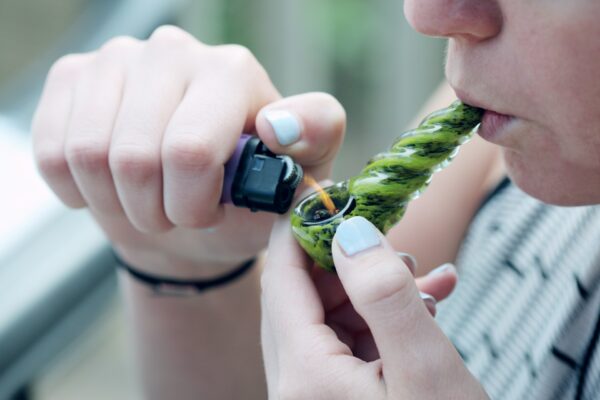Let's get started...
Understanding Tattoo Regret
Tattoos are a form of body art that involves the insertion of ink into the skin to create permanent designs. They're incredibly popular globally, seen as a method of self-expression, a rite of passage, or merely a cosmetic preference. However, getting a tattoo is a significant decision, especially because removing one is neither easy nor always completely effective.
The possibility of regretting a tattoo is real. As per a survey, nearly one-third of people with tattoos regret getting at least one of their tattoos. Reasons for this regret can range from impulsive decisions made at a young age, changes in personal aesthetics, faded ink over time, or tattoos that no longer hold personal relevance. Whatever the reason, the feeling of regret can trigger a range of emotions from mild annoyance to severe distress, impacting one's self-esteem and satisfaction with their appearance.
The Impact of Tattoo Regret on Young People
As a teenager or young adult, the decision to get a tattoo can often be influenced by current trends, peer pressure, or the desire for self-expression. However, as you grow and evolve, so do your tastes and beliefs. Tattoos that once seemed like a good idea can become sources of regret. This can affect how you feel about yourself and how you interact with others. For example, visible tattoos might pose challenges in certain professional environments, leading to feelings of frustration and limiting clothing choices to cover them up.
Psychologically, tattoo regret can have a deeper impact. It can lead to feelings of remorse and self-doubt, undermining confidence in making future decisions. In some cases, if the tattoo reminds you of a painful time or relationship, it can also impact your mental health.
Practical Strategies for Dealing with Tattoo Regret

1. Give It Time
Initially, the regret might feel overwhelming. It's important to give yourself time to understand your feelings about the tattoo. You might find that the negative feelings lessen over time, or you may come to terms with its presence on your body.
2. Consider a Cover-Up Tattoo
If you're sure you no longer want the original tattoo but are open to other designs, a cover-up is a popular option. Tattoo artists specialise in designing tattoos that effectively incorporate or completely hide the old design. This is a creative way to transform an unwanted tattoo into something new and meaningful.
3. Seek Professional Tattoo Removal
Advancements in technology have made tattoo removal more accessible and effective. Laser tattoo removal is the most common method where lasers are used to break down the ink particles in the skin, which are then eliminated by the body's immune system. This process can significantly fade the tattoo or remove it entirely, depending on numerous factors such as the ink type, colour, and your skin type.
It's essential to consult with a professional to understand the potential outcomes and the number of sessions required. Keep in mind, tattoo removal can be expensive and painful, and may not completely restore the skin to It's original appearance.
4. Camouflage with Makeup
For temporary solutions, especially if the tattoo is in a visible area and you need a quick fix, special tattoo cover-up makeup kits are available. These products are designed to be highly pigmented and long-lasting, capable of concealing tattoos effectively.
5. Consult a Therapist
If your tattoo regret is causing significant distress or affecting your mental health, speaking to a therapist can be beneficial. They can help you navigate your emotions and deal with underlying issues related to your regret.
6. Learn from the Experience
While it might be challenging to see any positive sides when you're feeling regret, try to view this as a learning experience. Understanding your reasons for regret can inform future decisions, not just about body art but also more broadly in other life choices. This situation can serve as a thoughtful reminder about the importance of deliberation and personal reflection before making permanent decisions.
Conclusion
Experiencing tattoo regret is something quite a few face, particularly those who make quick decisions at a young age. If you find yourself regretting a tattoo, remember you have options available. Whether it's choosing to live with it, covering it up, removing it, or using makeup, it's crucial to weigh your choices and decide what's best for you. Additionally, understanding this feeling and using it for personal growth marks a significant step in learning more about yourself and ensuring future decisions align more closely with your evolving identity and values.
How are you feeling?
It is really important that when we need help, we feel able to ask for it. This could be speaking to a parent, a close friend, a teacher or someone else you trust. Sometimes it can be really hard to share our feelings with other people but if we are feeling low or don't know where to turn, sharing with others is really important. Teachers will always take you seriously and listen to your problems in confidence if you approach them for help. Likewise, parents, siblings or friends will help you if you reach out to them.
If you feel like you can't speak to anyone you know, there are people and organisations that can help support you:
- Childline - Call them on 0800 1111 any time of the day or night, every day of the week
- NSPCC - Call them on 0808 800 5000 between 10am and 4pm Monday to Friday or email them on help@NSPCC.org.uk
- The Samaritans – Call them on 116 123 any time of the day or night, every day of the week
- SANE – Call 0300 304 7000 for support (4:30pm - 10:30pm every day)
- Mind – Call 0300 123 3393 (9:00am - 6:00pm Monday to Friday)
*Sometimes we will use real life examples in our articles to aid understanding. When we do, names and ages will be changed.













